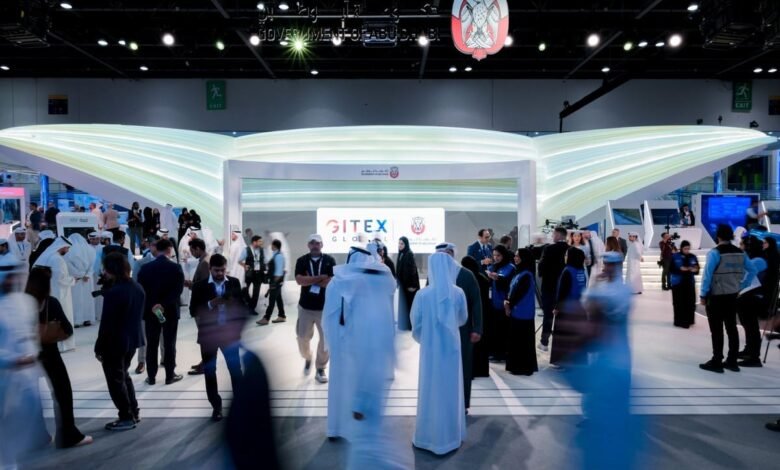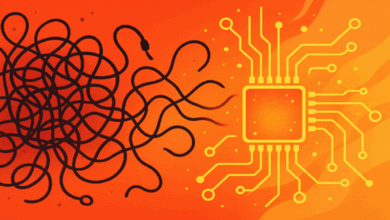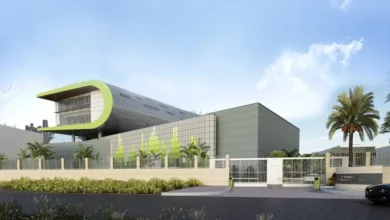Abu Dhabi Debuts World’s First AI Public Servant at GITEX 2025

▼ Summary
– Abu Dhabi showcased breakthrough innovations at GITEX GLOBAL 2025, aiming to become the world’s first fully AI-native government by 2027.
– TAMM 4.0 was unveiled, featuring AutoGov as the world’s first AI-powered public servant and integrating over 1,100 services with advanced AI features.
– Key innovations included the RAAD smart vehicle for emergency response, a quantum computing deployment for energy, and an AI-powered Population Health Intelligence Platform.
– Abu Dhabi announced a record number of strategic partnerships, including agreements to integrate MoFA services into TAMM and collaborations for AI in energy and infrastructure.
– GITEX GLOBAL 2025 reinforced Abu Dhabi’s role in public innovation, with the event moving to the Dubai Exhibition Centre for its 2026 edition.
Abu Dhabi has firmly established its leadership in the global digital transformation race with a series of groundbreaking announcements at GITEX GLOBAL 2025. Spearheaded by the Department of Government Enablement – Abu Dhabi (DGE), the emirate’s presentation featured more than thirty government and academic bodies revealing a suite of advanced innovations, strategic alliances, and digital public service platforms. This comprehensive display underscores Abu Dhabi’s ambitious goal to evolve into the world’s first fully AI-native government by 2027, merging technology, governance, and resident services into a single, intelligent operational framework.
Under the guiding principle “AI-Native by Design, Community-Driven by Purpose,” participating entities shared their vision for a comprehensively intelligent administration. The standout introduction was TAMM 4.0, which includes AutoGov, recognized as the world’s first AI-powered public servant. This autonomous system handles a variety of citizen-facing tasks such as license renewals, medical appointment scheduling, and utility bill payments, all tailored to individual user preferences. The upgraded TAMM platform now brings together more than 1,100 services from both public and private sectors. It incorporates sophisticated tools like AI Vision, Smart Guide, voice-enabled assistance, and live translation capabilities, delivering a fluid, protected, and intelligent digital interface for every resident. In a related development, the Statistics Centre – Abu Dhabi introduced the Bayaan application, offering investors, companies, and executives streamlined access to detailed statistics and UAE business metrics to support informed, data-led decisions.
Beyond everyday services, the event highlighted major strides in infrastructure and public safety. The Abu Dhabi Civil Defence Authority, in cooperation with K2, presented the RAAD smart vehicle, an unprecedented multi-mission unit that fuses artificial intelligence, robotics, and a centralized command system to enhance emergency operations. Additional innovations included a Smart Inspection Robot designed for patrol and public safety duties, plus LivAI, a new Digital Twin Platform that merges live data streams, robotics, and predictive analytics to model and oversee large-scale urban development. Another significant launch came from the Advanced Technology Research Council, which, together with ADNOC, ASPIRE, and the Technology Innovation Institute, unveiled the UAE’s inaugural quantum computing system for the energy industry. This system employs quantum algorithms to boost operational efficiency, lower emissions, and support ADNOC’s Net Zero by 2045 initiative.
The Department of Health introduced the globe’s first AI-driven Population Health Intelligence Platform, a predictive tool that detects health risks early and enhances long-term community wellness. Separately, QMobility revealed the Zero Barrier AI Parking system, which uses real-time license plate recognition and integrates smoothly with the DARB wallet. These and other innovations emphasize Abu Dhabi’s determined push to embed automation into the fabric of daily living.
A record number of collaborations and memoranda of understanding were announced throughout the week, linking government, industry, and academic institutions. On just the second day, nineteen partnerships were revealed, marking the largest single-day collaboration in the Abu Dhabi Government’s history at GITEX. Among the key agreements, the DGE finalized plans to integrate Ministry of Foreign Affairs services into TAMM, enabling document attestation and consular functions on the unified digital platform. The Department of Energy disclosed a partnership with Google Cloud, SPACE42, and Mohamed bin Zayed University of Artificial Intelligence to implement AI models for energy forecasting, renewable resource optimization, and geospatial analysis.
The DGE also confirmed five strategic alliances on the critical infrastructure front, joining with Core42, CyberGate, Etisalat by e&, and Microsoft to reinforce Abu Dhabi’s sovereign cloud capabilities, cybersecurity posture, and AI-readiness strategy. Furthermore, the Department of Municipalities and Transport announced five partnerships aimed at accelerating the emirate’s smart urban ecosystem, working alongside e&, Capgemini, Hikvision, Analog Studios, and Origen Technology.
GITEX GLOBAL 2025 has reaffirmed its status as the planet’s most influential stage for public innovation and digital advancement. Abu Dhabi’s extensive showcase illustrated a nation rapidly progressing toward a future where governance and technology align to create the world’s first AI-native society. Looking ahead, GITEX will open a new chapter as the world’s premier technology and AI event, scheduled for 7–11 December 2026 at its new venue, the Dubai Exhibition Centre in Expo City Dubai.
(Source: Economy Middle East)





